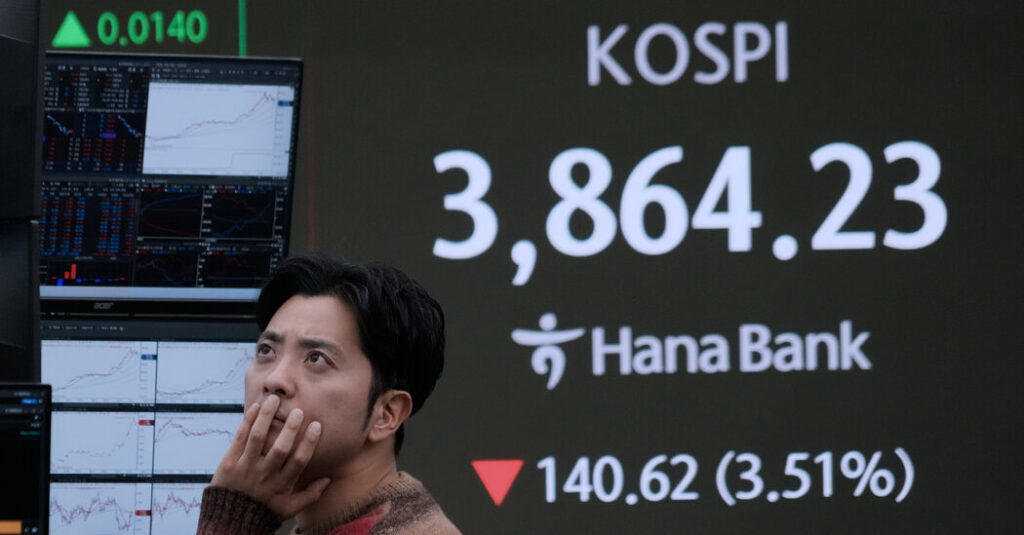Stocks in South Korea, Taiwan and Japan tumbled on Friday, reversing gains from a rally the previous day, as investor anxiety about a potential investment bubble in artificial intelligence bled over to Asia from the United States.
The Kospi index in South Korea fell more than 3 percent in early trading in Asia on Friday. The losses were driven by declines in South Korean chip companies, including SK Hynix, which plummeted more than 7 percent.
Benchmark indexes in Japan and Taiwan declined more than 2 percent. Advantest, a Japanese manufacturer of semiconductor equipment, was down more than 10 percent, while Taiwan Semiconductor Manufacturing Company shed more than 4 percent.
In recent weeks, investors have been increasingly concerned that tech companies’ lavish spending on A.I. hardware like semiconductors and data centers — which has helped to fuel a rally in A.I.-related stocks over the past three years — might be outpacing actual demand. That has prompted a slump in the shares of many large global technology firms.
On Thursday, global tech stocks briefly surged after the chipmaker Nvidia unveiled strong earnings, signaling to investors that demand for chips essential to A.I. projects had not abated. The Nikkei 225 index in Japan saw its strongest performance in a week, thanks to surges in the prices of many of the country’s semiconductor-industry companies.
But the relief was short-lived, and investors began to lose their nerve again.
In the United States on Thursday, Nvidia opened more than 5 percent higher but lost those gains by the afternoon, ending the day down more than 3 percent. The S&P 500 tumbled after climbing as much as 1.9 percent in morning trading, closing the day 1.6 percent lower.
The market rally and subsequent reversal underscore how investor jitters about potential overvaluation in the A.I. sector are prompting swings in technology stocks, which sway the overall performance of global indexes.
During Asia hours, futures trading on the S&P 500, for which Nvidia is the largest component, edged higher, suggesting that the index might open slightly up on Friday in the United States.
River Akira Davis covers Japan for The Times, including its economy and businesses, and is based in Tokyo.
The post Anxiety Over A.I. Spending Returns to Global Markets appeared first on New York Times.




